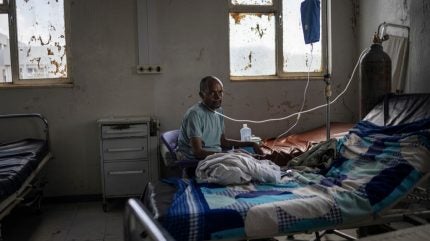
Noncommunicable disease (NCD) prevention initiative Access Accelerated and the World Bank have entered into a technical partnership seeking to improve financing for NCDs care in low- and middle-income countries.
The partnership will work alongside Results for Development (R4D) to establish the Financing Accelerator Network for NCDs (FAN) – a coalition of organisations that will bridge healthcare gaps through regionally hosted NCD financing accelerators.
FAN will be comprised of global and local organisations, that will address financial inequalities by supporting and guiding governments and local stakeholders. Informed by the 2030 Sustainable Development Goals,
FAN will prioritise plans to build resilient health financing systems, advance universal health coverage and develop strong primary healthcare systems.
“We’ve heard from governments and local stakeholders that they need expertise, support, and locally relevant solutions to transform their health financing systems,” said Herb Riband, director at Access Accelerated, which comprises a collective of biopharmaceutical and life science companies. “We have to respond to the call to help countries build financial and technical capacity to address NCDs and improve health outcomes.”
FAN will provide support across regions including Sub-Saharan Africa, Latin America, the Caribbean and Asia-Pacific. R4D will act as a network manager to provide regional expertise, on-demand technical support, cross-country learning opportunities and catalytic seed funding to programmes aimed at improving NCD financing and health outcomes.
The first regional NCD Financing Accelerator will be hosted by the African Institute for Development Policy (AFIDEP) to better meet the needs of Sub-Saharan Africa, which has seen the fastest-growing rates of NCD incidence and mortality in recent years. Despite the growing need for NCD financing, only 7.2% of government spending is allocated to health.
“As the host of the first regional NCD Financing Accelerator, we will use evidence to unite and mobilize country change agents and empower local stakeholders to co-create solutions, foster cohesive communities of learners, and overcome common health financing challenges,” said Dr Rose Oronje, director of public policy and knowledge translation and head of Kenya office at AFIDEP.
Regional accelerators will provide opportunities for local stakeholders to invest in sustainable health financing solutions, with a view to developing robust healthcare systems. The next months will see FAN prioritise analysis of NCD financing across Africa, before sharing its findings in early 2025. In collaboration with government officials, policymakers, and other stakeholders, the initiative will shape solutions to continent-wide problems in the NCD care field.
NCDs are the cause of death for 41 million individuals annually – equivalent to 74% of all global deaths – according to the World Health Organisation. Of the 17 million annual NCD deaths of under 70s, 86% occur in low- and middle-income countries. They include cancer, diabetes, cardiovascular and chronic respiratory diseases, as well as mental and neurological disorders. Between 2010 and 2030, total costs are projected to reach approximately $47trn in healthcare and lost productivity.



